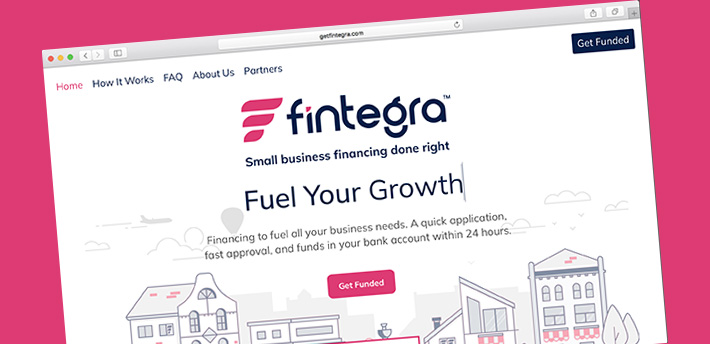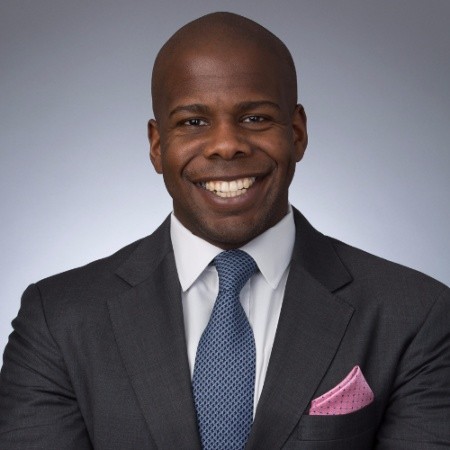Articles by Adam Zaki
Adam is a Reporter from Long Island and graduate of Brooklyn College.
What Works in Marketing Financial Products
November 17, 2021 Social media was at the top of the list for many marketers that deBanked spoke with, but there are certain formulas necessary to make it work, they say.
Social media was at the top of the list for many marketers that deBanked spoke with, but there are certain formulas necessary to make it work, they say.
“It’s coming up with new ways to say ‘we want to fund your deals,’” said Cassandra Lund, Social Media Manager at Lendini, when asked what the hardest part of her job is. Being heavily involved in the marketing campaigns of a large small business funding company, Lund believes social media is a prime place for setting up brand legitimacy.
“[Social media] provides something that even other forms of marketing cannot,” said Lund. “It instantly connects you to your audience and allows them to ask questions right away, either through direct message or as a comment.”
Fintech companies are also strategically using social media to start getting their name out there. Jennifer Marshall, Marketing Manager at fraud and dispute software provider Quavo, praised the power of social media; especially platforms that provide a professional environment for both consumers and businesses.
“We see the most results on LinkedIn,” said Marshall, “from both paid and organic efforts. “LinkedIn can take [businesses] a long way if their marketing team leverages tagging and mentioning [on the platform]. In the early stages of a company, when brand awareness is the top priority, [businesses] should leverage their employees’ LinkedIn networks.”
 While Marshall and Lund are marketing different financial products, they both agree on the inherent value of LinkedIn to their respective companies when it comes to a buttoned-up platform for connections and content.
While Marshall and Lund are marketing different financial products, they both agree on the inherent value of LinkedIn to their respective companies when it comes to a buttoned-up platform for connections and content.
“Just create a Linkedin and Instagram and start posting,” Lund said, when asked how a business could get their foot in the social media door. “You will find people in your industry, potential clients and information about what other businesses in your field are doing. Build out from there, and your business will thank you for it.”
With the opportunity social media provides comes responsibility, and some companies have let simple mistakes hurt the perception of their brand. Lund and Marshall both believe that a misguided or typo-littered social media presence can do a company more harm than good.
“Spelling errors and bad graphics, I see these [errors] a lot on social media as it becomes more and more important to small businesses,” said Lund. “There is nothing more important on social media than a first impression, and a spelling error or hugely pixelated photos is a major deterrent.”
Marshall stressed that companies not let “B2B vs B2C” marketing practices dictate their social media efforts. “In the end, you should want to reach people where they work and where they play. Once you understand that, the value of social media to all financial companies is crystal clear.”
 With new members of the work force living most of their lives ingrained in social media, it appears its value in the business world is exponential. “The younger generations have used it for years, or since being born, and it’s not going anywhere in the near future,” said Lund. “Finding new clients, new customers and like-minded business professionals on [social media] helps build your brand and stake a claim in the industry. Anyone that doesn’t think social media is important in business in general is missing out.”
With new members of the work force living most of their lives ingrained in social media, it appears its value in the business world is exponential. “The younger generations have used it for years, or since being born, and it’s not going anywhere in the near future,” said Lund. “Finding new clients, new customers and like-minded business professionals on [social media] helps build your brand and stake a claim in the industry. Anyone that doesn’t think social media is important in business in general is missing out.”
Marketing financial products, especially new or alternative fintech solutions can be difficult, however. When asked about how to market a financial product, Francesca Ligouri, Lead National Designer at Create with Chess, a national marketing company that works in a variety of industries, spoke about the values of traditional marketing materials on top of social media. She stressed the importance of putting a tangible item that explains your business model in the hands of a potential customer that may not fully understand the product being sold to them.
Ligouri spoke about networking materials, and how sometimes the explanation of a product is best done through tangible imagery.
“It’s about using infographics and icons [to help] create a storyline of what you’re trying to say, while keeping your demographic engaged,” said Ligouri. “Illustrative materials like brochures, folders, and mailers make people want to pick up your collateral and be like ‘oh cool, what is this all about?’ instead of printing a word document of all your info and expecting people to want to read through it.”
Whether it is printed or digital materials, innovation in finance isn’t just about the technology behind the products themselves, but also about how those brands and their products are introduced to potential customers.
Yes Lender Becomes Fintegra, Brings on Former Federal Reserve Vice Chair
November 15, 2021 Yes Lender is now Fintegra. Along with the name change, the company is bringing on Roger Ferguson, former Vice Chair of the Federal Reserve (1997-2006) in an advisory role. Ferguson is also an investor in Fintegra.
Yes Lender is now Fintegra. Along with the name change, the company is bringing on Roger Ferguson, former Vice Chair of the Federal Reserve (1997-2006) in an advisory role. Ferguson is also an investor in Fintegra.
“Our new name combines ‘fintech’ with ‘integrity’” said Glenn Forman, CEO at Fintegra. [The name] serves as a daily reminder to our customers and colleagues of our mission and values, which we take very seriously.”
The company’s goal is seemingly to write a lot of deals, and get them funded as fast as possible through a fintech application process. According to a press release, the online application can get merchants their funds within 24 hours of their application being submitted.
When touching upon Fintegra’s goals with the rebranding, Forman spoke on a good work environment along with customer-centric business decisions. “We’re committed to putting capital in the hands of entrepreneurs so they can grow their businesses and improve the lives of their customers, suppliers and employees, and we’ll continue to do so in a highly ethical and empathetic way.”
When speaking about the partnership with Ferguson, Forman believes this unprecedented addition will bring equally unprecedented opportunities to this company.
“We’re incredibly fortunate to be able to tap Roger’s wisdom and experience to accelerate Fintegra’s growth. His track record of success and impeccable ethics are perfectly aligned with our brand.”
Forman and Ferguson are looking to rekindle an old working relationship to help Fintegra take off. “While it’s been a few years since we worked together at McKinsey & Company, it feels great to be joining forces again to take Fintegra to new heights.”
Mortgage Fintech CEO says Brokers are Still Relevant to Lending Process
November 12, 2021
At Money 20/20 last month, deBanked spoke with Jason Harris, CEO of Button Finance, about his company’s initiative to give access to home equity loans to borrowers that would have never been able to do so. Through this conversation, Harris also shared his thoughts on how brokers across the finance world are still relevant, and the ones who are embracing tech are the ones who are closing deals.
Button Finance is a fintech company that brings together venture and hedge fund capital with borrowers seeking lines of home equity credit. After moving into second-lien mortgages, Button Finance is looking to open up a practice which according to Harris, is mostly an exclusive borrowing process for high net worth clients who borrow from large institutions.
“The reason we like this product is because if you’re an individual, you have to go somewhere like LendingClub or to your credit card to borrow money. And those are interest rates at 20%, as high as 30%, even if you have great credit, it can be over 10%. So we want to give people a much lower cost for access to credit.”
Harris also has a desire to make the process as quick and efficient as technology allows. He is embracing not only expanding the access to capital, but making the process to obtain it simple.
“We want to make it so you can borrow money sitting on the toilet on your phone,” Harris said.
When speaking about brokers in his industry, Harris touched on how the ones who are innovating are taking advantage of such a unique time, where the amount individuals innovating are relatively low, and the opportunities given by the innovation have never been higher.
While some companies offer a completely broker-less buying process, Harris thinks the role of a broker is necessary for a borrower of any loan to be comfortable and informed during the borrowing process.
“Now with regards to the need for brokers, this is something that now happens very often,” said Harris. “When people make large purchases, they like the comfort of speaking to someone and having someone advise them. Sometimes a broker can offer you some educational knowledge. We’re in the finance world; if you’re not a finance person at all, before you borrow $500,000, you might want someone advising you along the way.”
“Different brokers have different ways of brokering,” said Harris. “Some brokers spend money and build out great technology platforms themselves, and they’re able to scale and do ten times as many mortgages as a broker who is doing high touch [business]. Other brokers will use relationship based lending and have high touch [business]. I think it’s definitely going more towards the technology route.”
While embracing the value tech has, Harris realizes that with all this technology comes a responsibility to educate borrowers on all the different processes that are changing when it comes to data transfer, verification, and approval processes. “Like every other tech company, we want to try to bring technology to this as much as possible. We want to be able to advise a borrower on the best possible product just using technology.”
While speaking specifically about the innovation the financial world is experiencing, Harris thinks that a drastic change to the finance world will be take place over a long period of time.
“Like everything, things move slowly,” said Harris. “Don’t think this will happen overnight.”
Wing Lake Capital Announces New Capstone Fund
November 12, 2021 After acquiring Franklin Capital in October of last year, Wing Lake Capital CEO Shaya Baum spoke to deBanked about a new fund the company is unveiling, the Capstone Fund.
After acquiring Franklin Capital in October of last year, Wing Lake Capital CEO Shaya Baum spoke to deBanked about a new fund the company is unveiling, the Capstone Fund.
A mix of debt and equity has put $50 million into the Capstone Fund, all from investors of the Franklin Fund. According to Baum, the Franklin Fund still has about $100 million in it.
“Wing Lake Capital has two funds now,” said Baum. “There’s the Franklin Fund and the Capstone Fund. The Franklin Fund was launched as a bridge for companies that are stuck in the cash advance merry-go-round. Companies are stacking cash advances until they are using Peter to pay Paul, and then there are no more Peters.”
Comparing the Franklin Fund to the Capstone Fund, Baum described it as a “graduate fund” that will enable companies with too many advances to move beyond them and that it would serve as a stepping stone between the Franklin Fund and traditional SBA or bank financing.
Additionally, the Capstone Fund is also a place where companies who have extenuating reasons why they’re denied credit, but aren’t in distressed business situations, can get access to capital.
Baum’s business model is sometimes at odds with the advance providers his companies try to draw customers away from, with Baum going so far as to say that some of these providers “hate” him. Despite this, he says that some quietly work with him.
“These companies say one thing publicly and privately do another,” said Baum. “These companies that come to us for help are companies that can no longer pay their cash advance debt.”
As part of his company’s program, the advance provider can recover some of its money, he asserted.
“We’re getting 800 deals a week from cash advance companies saying ‘hey, can you help us get out of these?’”
Regardless of the tension with competitors, Baum believes the new fund will ultimately benefit the merchants.
“The Capstone Fund is really focused on growth capital as opposed to restructuring distressed assets. Okay, we’ve restructured your business, you don’t have to pay that cost of capital, you have to focus only on growth. You have opportunities to grow, room for success, now let’s scale the business.”
Blockchain Expert says Crypto Tools will Revolutionize Lending
November 11, 2021 Blockchain technology can seem complex, but many individuals operating companies that utilize the technology are planning for their world to collide with mainstream finance very soon. Mark Shekleton, CEO of Smart Seal, a company that provides digital identifications for physical goods, believes that those in fintech and small business lending will utilize the technology that blockchains offer on a daily basis in the near future. The technology that will be most useful according to Shekleton, is a type of token he refers to as an (non-transferable token) NTT.
Blockchain technology can seem complex, but many individuals operating companies that utilize the technology are planning for their world to collide with mainstream finance very soon. Mark Shekleton, CEO of Smart Seal, a company that provides digital identifications for physical goods, believes that those in fintech and small business lending will utilize the technology that blockchains offer on a daily basis in the near future. The technology that will be most useful according to Shekleton, is a type of token he refers to as an (non-transferable token) NTT.
“When I’m talking about NTTs, I’m talking about a token that is like an NFT, but it can’t be transferred. It’s issued against a wallet and it can be revoked from that wallet by the issuer,” said Shekleton.
“By issuing NTTs, you allow [merchants] operating in the crypto space to gain reputation and credit for the activity they do under that wallet. So if I am operating a business, and I’m using a crypto wallet to operate, and I borrow some money, and I pay it back, the lender can issue me a positive credit report; a positive token. A token that symbolizes a positive [payment history].”
This token, issued as a one-way NFT, would be a permanent record on an objective platform that could be referenced by anyone who is looking to view the credit history of a specific merchant.
“If I go to another lender [as a merchant], they can look at all of these NTTs that are issued against my wallet and they can say ‘hey look, we saw this other lender issue one of these tokens’, [thus] you paid back your loan, and have this positive piece of reputation associated with your wallet.”
“As you go, the level of trust around a certain wallet increases. If you operate your business, and you can demonstrate that you are trustworthy, and you have people who are issuing these tokens in your wallet, you can prove to anyone else that you are a trustworthy business.”
Shekleton expanded his ideas of potential uses for blockchain technology into identity verification as well. He explained how the same process used for credit history for merchants can be used for individuals or businesses when trying to prove who they are virtually.
“Companies or banks that have services where they’re verifying the identifying of online customers, there’s a really good opportunity here for (Know Your Customer) KYC companies to issue identity tokens,” said Shekleton.
“Say I have a wallet. And right now I created a new wallet, it’s completely anonymous, I’ve never associated my identity with it. But I want to use that wallet to borrow money. I want to make sure there’s no money laundering, the lender needs to know my identity. I go to a KYC issuer, I upload my ID, meet all my requirements to verify my ID, and I sign with the wallet to prove that I’m the holder of this wallet. Then, they issue an identity token, and I can’t transfer that token to anyone else’s wallet, it can only stay in my wallet.”
According to Shekleton, an NTT’s ability to be revoked by the issuer makes it a great way to counteract fraud or identity theft, as the authenticity of the token can be revoked at any time, making the token visibly unusable to all who attempt to use it fraudulently. When asked why this idea hasn’t caught on, and why he referred to NTTs as “not talked about, and complex” at NFT.NYC last week, he blamed the infancy of NFTs and how NTTs are just too new to be widespread.
“The technology itself is just in its infancy. I think there’s a huge opportunity here, virtually untapped, but it’s still very young so it’s going to be a couple of years before anyone realizes the gains of this tech if you start building it now. I think when you start talking about NFTs as utilities to fintech and lending companies, I just don’t think they are awake to that yet. They haven’t started building.”
Lender is Providing $5K Incentive to Veteran-Owned Businesses
November 10, 2021 In an effort to promote veteran entrepreneurship, Fountainhead, the nation’s leading SBA 7(a) and 504 non-bank lender, is providing funds to veterans to assist them with closing costs of the deal should they pursue funding through the company.
In an effort to promote veteran entrepreneurship, Fountainhead, the nation’s leading SBA 7(a) and 504 non-bank lender, is providing funds to veterans to assist them with closing costs of the deal should they pursue funding through the company.
Fountainhead’s CEO Chris Hurn spoke exclusively to deBanked Wednesday about what Veterans Day means to him, his business, and how giving this group a break on the cost of capital is not just a marketing ploy, but a genuine attempt to give back to an underserved and under-recognized community.
“We have always been very supportive of veterans getting into entrepreneurship,” said Hurn. “[The promotion] is basically us gifting $5,000 on a transaction if they close with us.”
“Oftentimes, that’ll be enough to cover a real estate appraisal, enough to cover the environmental reports, it may be able to cover some of the credit reports, different things like that. We do put a cap on it, we are still a for-profit enterprise, but we are covering up to $5,000 of the closing costs.”
As a lender with more than two decades of experience, Hurn believes that veterans are some of the most trustworthy and reliable business owners to do business with. “Some lenders feel like veterans don’t have business experience, I disagree with that,” he said. “I think the military teaches people to be very organized, very disciplined, which are two critical pieces for entrepreneurship.”
From the lender’s perspective, Hurn believes that it is not only good business practices that military experience can provide, but honesty and creditworthiness when it comes to paying back a loan.
“Veteran business owners tend to be extremely organized, extremely disciplined in terms of operating the business. I’m not saying [non-veteran] business owners don’t have aspects of that, but I think the military does a tremendous job on teaching those character traits, which as a lender I find very helpful to make sure I’m getting repaid.”
According to Hurn, about a fifth of his clients are veterans, and he is hoping to increase that number with this promotion.
“[Veterans] are a very good credit risk, we want to encourage them to get into entrepreneurship, and I think it’s the right thing for the business community to do all they can to help veterans.”
Wall Street Banker Turned Fintech CEO Builds Two-in-One App For Underserved Communities
November 10, 2021 Andrew Glaze, CEO of Wealthstack, shared his thoughts with deBanked on the role fintech is playing in bringing innovation to minority communities. While actively working in the financial world and spreading awareness about the diversity issues in the field, Glaze hopes to share his story so that those in similar situations as he was know that there is a chance to achieve profound financial literacy.
Andrew Glaze, CEO of Wealthstack, shared his thoughts with deBanked on the role fintech is playing in bringing innovation to minority communities. While actively working in the financial world and spreading awareness about the diversity issues in the field, Glaze hopes to share his story so that those in similar situations as he was know that there is a chance to achieve profound financial literacy.
According to Glaze, Wealthstack is mainly a digital investment platform designed to teach diverse and underserved communities how to invest. These communities include African American, Hispanic, Asian, and veterans.
As a Jamaican immigrant, Glaze went from sleeping in a two bedroom apartment with twelve people as a child, to climbing through the financial world. According to him, he now manages over a billion dollars of capital between all of his financial endeavors.
“In Bed Stuy, I saw a lot of impoverished, poor, good and noble people who would never have the opportunity to create wealth for themselves,” said Glaze, when asked about what Wealthstack was all about. “So I created a platform that allows me to leverage my expertise and experience, and recognize the training tools within it. There’s a number of training platforms out there and there’s a few educational platforms out there, this is both.”
As a West Point and Columbia Business School graduate, he made his way through Wall Street as a banker and then a hedge fund manager. He now wants to use his adversity ridden story to provide an opportunity for those that grew up in the similar conditions he did, putting together an effort to provide a fair chance for the underserved at being financially successful.
Wealthstack users will get the education and real world practicality out of the mobile app, and they will soon be able to invest directly on the platform after they learn about what each type of investment is.
“We do a series of two to four minute videos that cover everything from the very basics of what is a credit score is, all the way up to how to value businesses based on cash flow. There’s over one hundred videos on the platform today, each video features diverse actors, so you’re able to see people that look like you.”
When asked about the biggest issue facing underserved communities, Glaze discussed access to capital as one of the things that over time, has not caught up with other bias practices being weeded out.
“I’m in a unique position as an African American veteran immigrant, and also senior financial professional, who serves on boards. I’m evaluating $500 million loans for $2 billion businesses that I’m on the board of, but then also going out and personally applying for credit at different points of time. I am very familiar with the challenges that are faced due to inherent bias.”
Although Glaze said that things changed a lot over the past hundred years when it comes to underserved communities having wealth, he thinks lending is lagging behind. “I will tell you that that same spirit of resentment against offering capital to people that don’t look like you certainly is alive and well today. And it manifests in a number of different ways.”
It’s Time to Check That ISO Agreement and Balance the Broker/Funder Relationship
November 8, 2021 The fine print of ISO Agreements, long a thorn in the side of brokers when it’s worked against them, is an area that is ripe for change. All too often the price of a referral relationship is a take-it-or-leave-it contract that is not up for negotiation. So says Jared Weitz, CEO of United Capital Source and Co-Chairman of the Broker Division at the SBFA. He told deBanked that he’s gotten major pushback from some funders for redlining deals prior to inking them.
The fine print of ISO Agreements, long a thorn in the side of brokers when it’s worked against them, is an area that is ripe for change. All too often the price of a referral relationship is a take-it-or-leave-it contract that is not up for negotiation. So says Jared Weitz, CEO of United Capital Source and Co-Chairman of the Broker Division at the SBFA. He told deBanked that he’s gotten major pushback from some funders for redlining deals prior to inking them.
Aware that he is not alone in dealing with this, Weitz is looking to push out uniform agreements to the industry that would align both sides, creating a fair arrangement and providing for mutual indemnifications.
“I want to explain the importance of it on a broker’s side because I think that what is happening is that there are funders who solicit business [by saying] that they are broker and customer-centric, us being the customer, and [then] we get handed an agreement that literally signs [our] business away,” said Weitz.
“If you don’t know any better, you’re totally screwed.”
Weitz spoke in detail about how the concept of redlining an agreement is a part of doing business with large financial institutions, but when it comes to funders, it’s an entirely different situation.
“In most industries, it’s such a normal thing to redline an agreement. We were [working] with AMEX, a huge company, and it was understood like ‘hey, shoot this over to your lawyer, let us know,’ it was already understood that we were going to redline it. In [small business lending] if you want to redline something, it’s almost like the funder gets offended.”
When it comes to mutual indemnification, Weitz talked about how this is the biggest issue in these types of deals, especially as new laws are creeping into certain states that are going to change the way many funders do business. In response to some of these new laws, funders are not only trying to put all of the legal responsibility on the brokers, but forcing them to give up their book of business in order to get deals done.
“Now that there are new laws popping up in different states and being enforced differently, funders have come out with new agreements, and look, that’s okay to do right, any broker worth their salt is going to say ‘hey, we agree to not lie and mislead, we agree to follow the TCPA laws, to follow the CAN-SPAM email laws,’ that stuff is easy. What is with these agreements is that you have funders that say to a broker in the [contract], we want the right to come and fully audit your books.”
After the implementation of his own mutual agreement, Weitz claims that a quarter of the funders he worked with prior to his agreement no longer want to do business with him.
 “There is a large 25 percent, and were talking about big name funders that I have stopped working with over the last twelve to eighteen months because they have literally tried to hit me with the most onerous agreement you could ever see, and when I spoke to them about it, they said ‘you know what Jared, most people just sign this and send it back.’ And that made me afraid for the broker industry.”
“There is a large 25 percent, and were talking about big name funders that I have stopped working with over the last twelve to eighteen months because they have literally tried to hit me with the most onerous agreement you could ever see, and when I spoke to them about it, they said ‘you know what Jared, most people just sign this and send it back.’ And that made me afraid for the broker industry.”
Although a positive relationship with a funder is imperative to being a successful broker, Weitz believes that some type of mutual agreement will protect people like him from being taken advantage of when things don’t go as planned for the funder.
“The guy that doesn’t let you redline his agreement, you should run away from that guy, because I have been in that scenario, where I’ve hugged, I’ve eaten at a man’s house with his family, and I’ve had that same man when things are down do what he has to do.”
Weitz talked about how the relationship with a funder can start a business relationship, but stressed that a fair agreement keeps it going. “Everyone’s friends when they’re making an agreement. Everyone’s [all] smiles, everyone is handshakes and hugs, but when things are bad in the world, and those smiles turn into straight faces, people look to that agreement, and say ‘okay what can I do?’”
When asked about losing deals to brokers who are willing to sign their lives away to get a deal done, Weitz said that those types of brokers are the ones that even if they do make a quick deal, they will never survive long enough to make a legitimate impact on the industry.
“I think funders will say ‘listen, you sign this agreement we will give you XYZ,’ and let me tell you, that’s the funder that is going to take your lunch from you, and that’s real,” said Weitz.
“The guy that offers you everything to just sign without a redline, is the guy that will crush your business, mark my words.”































